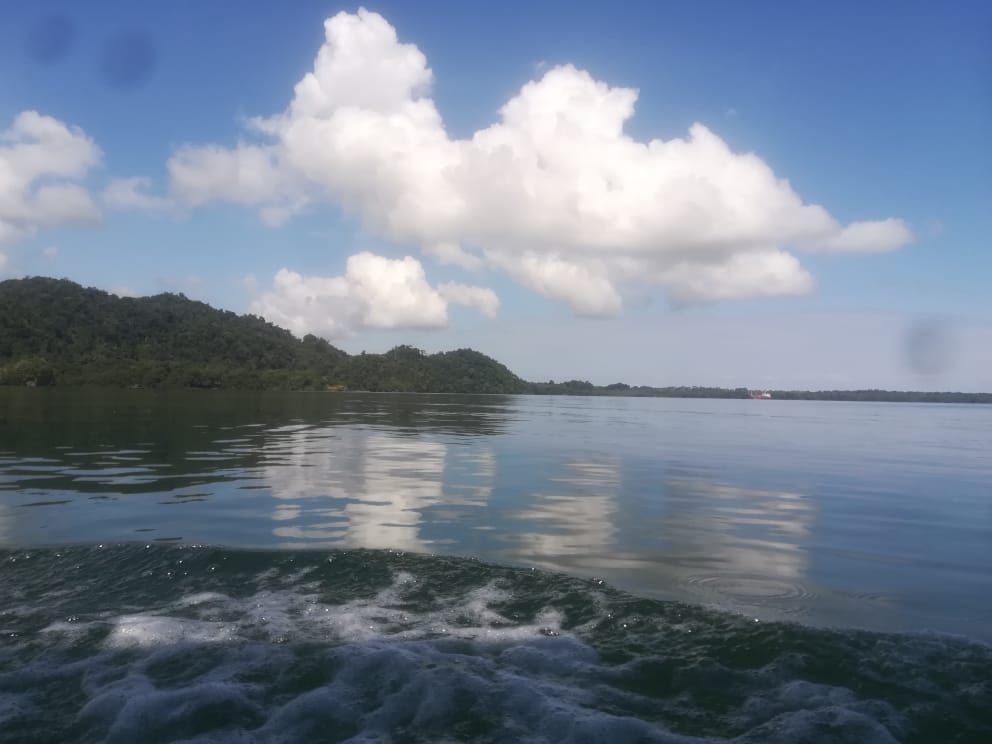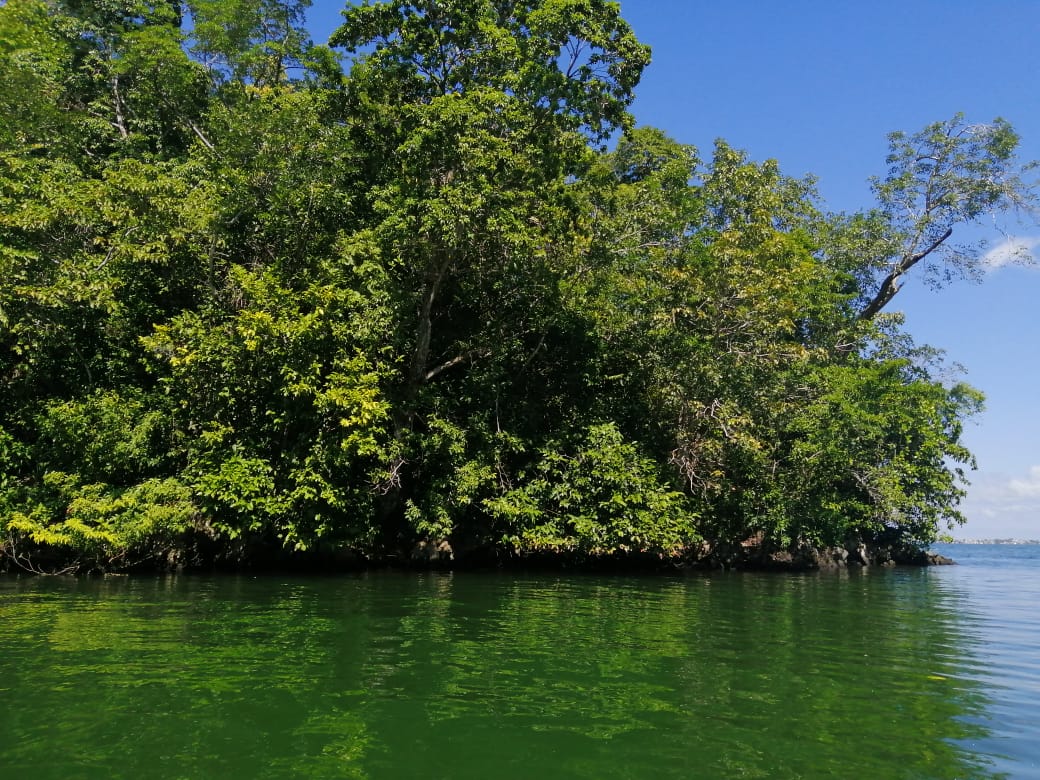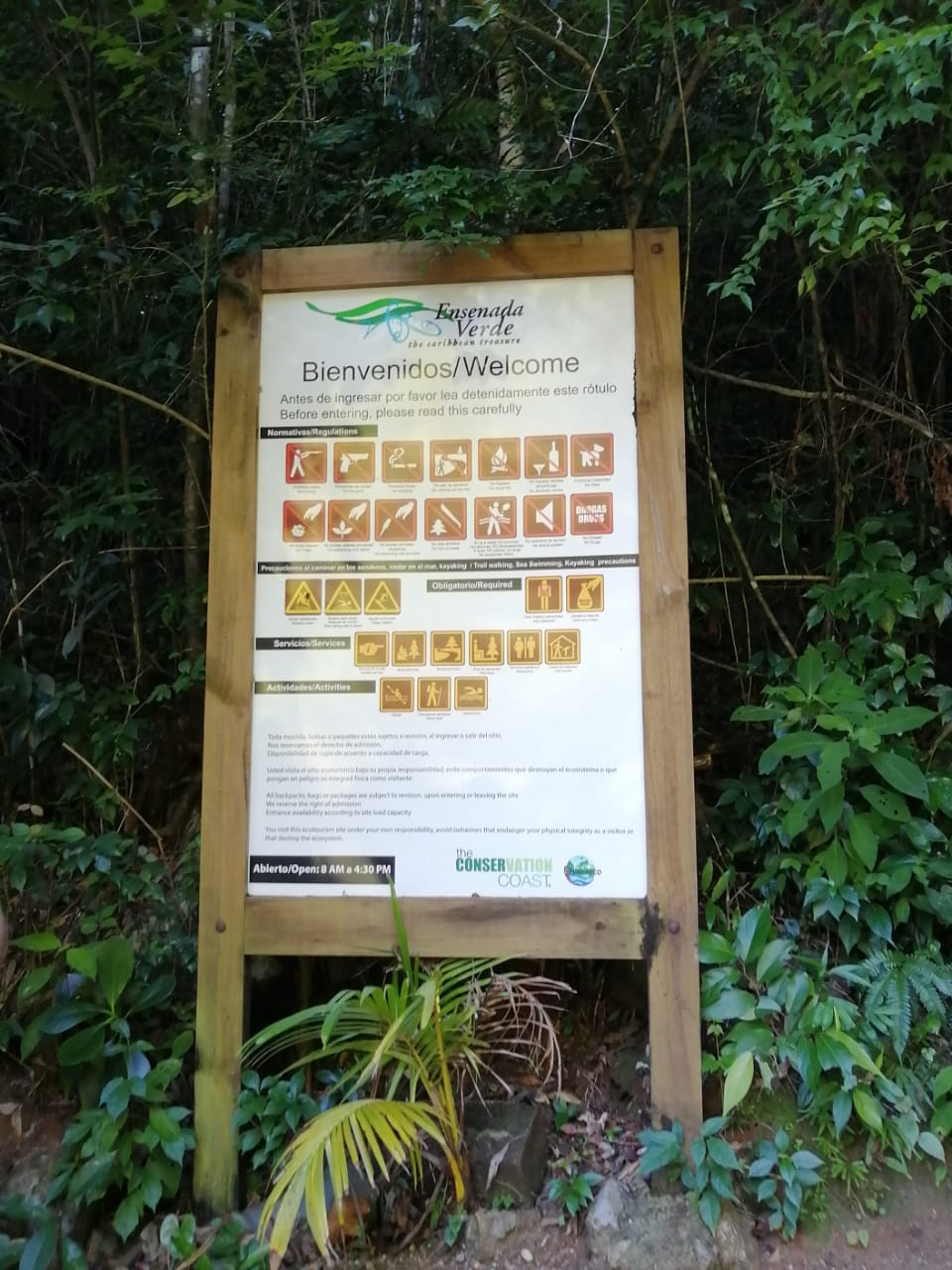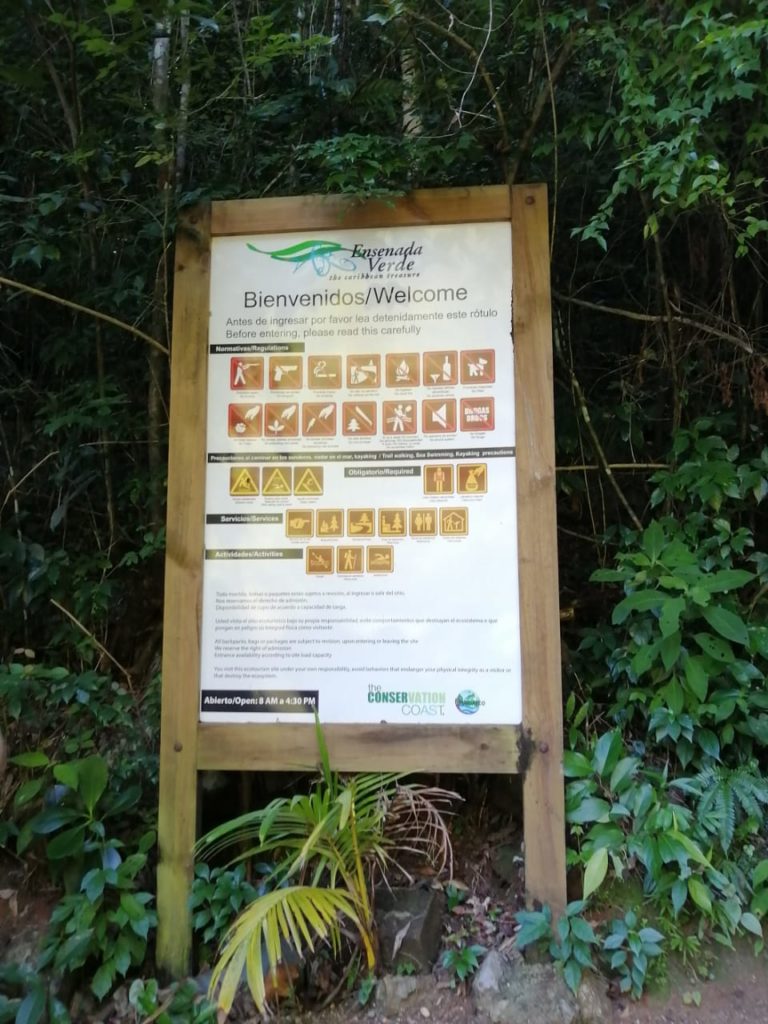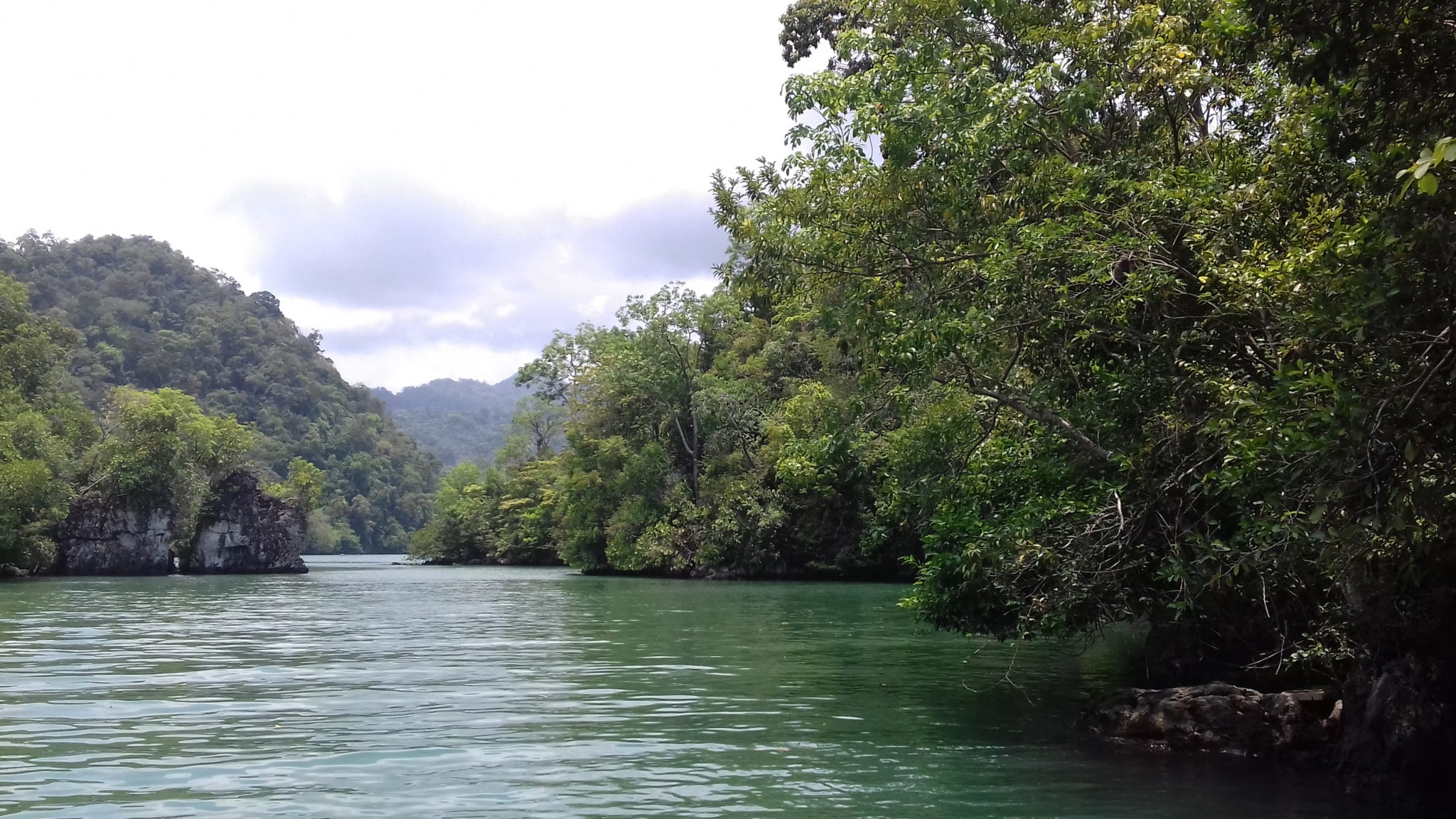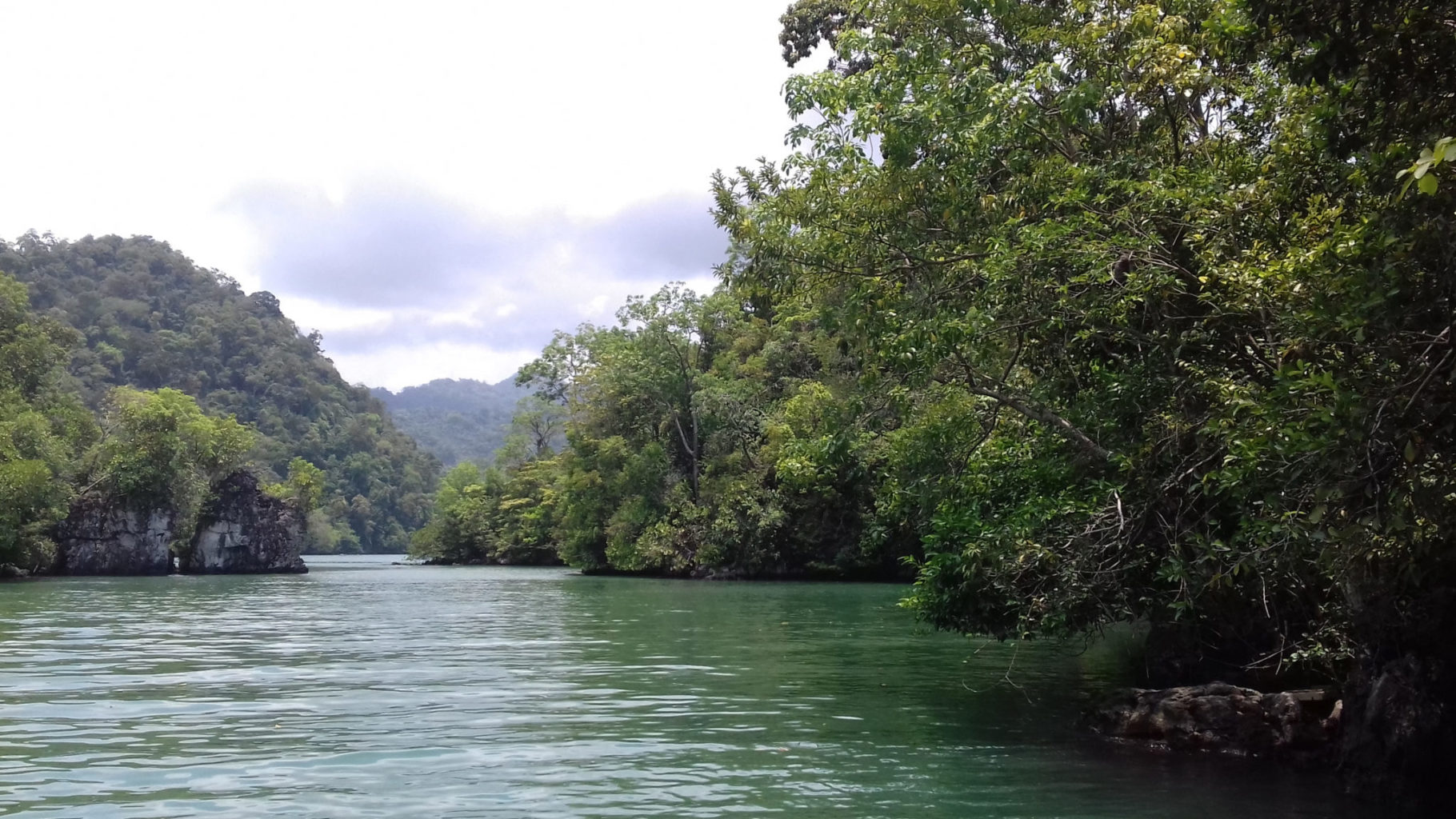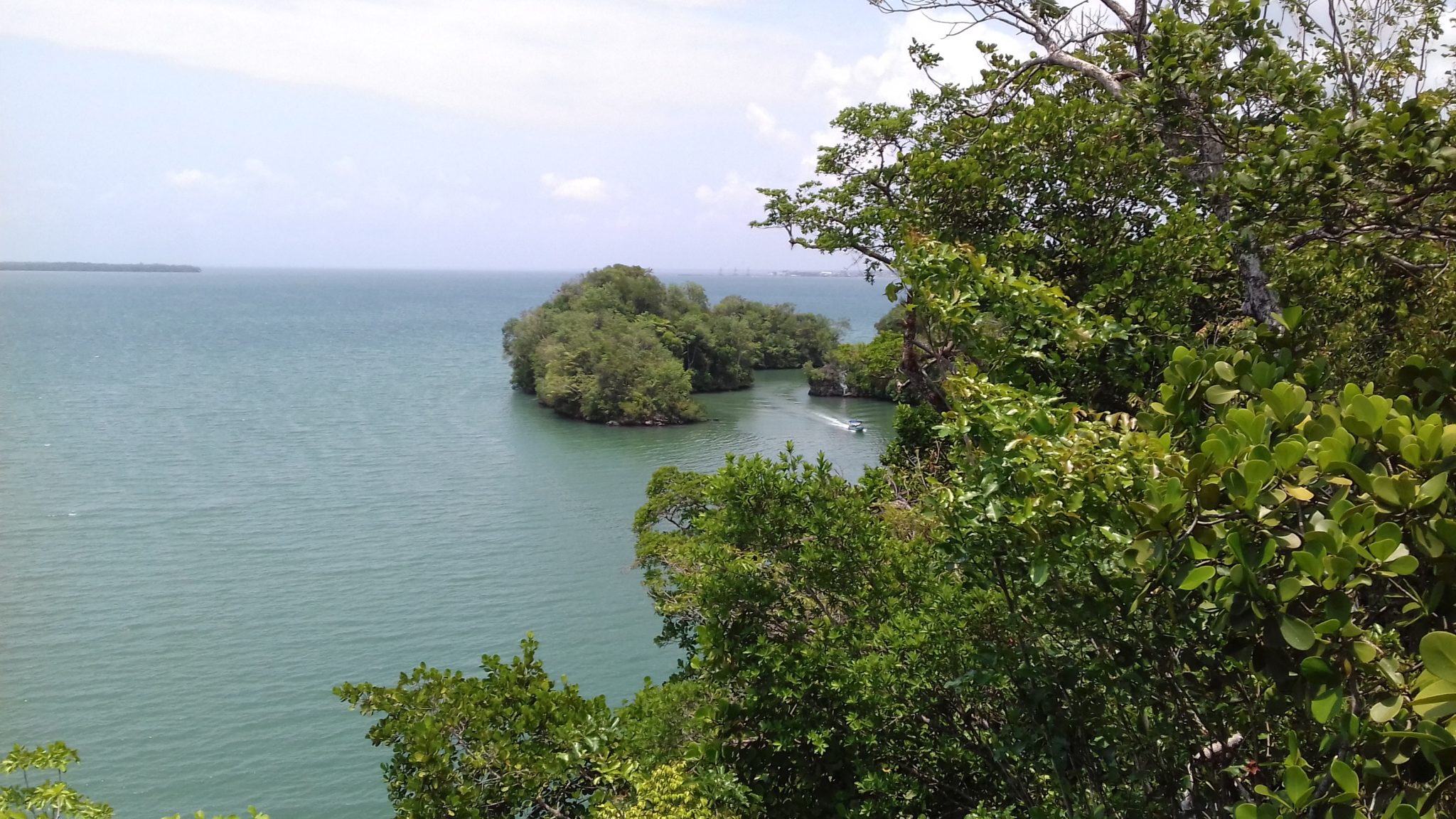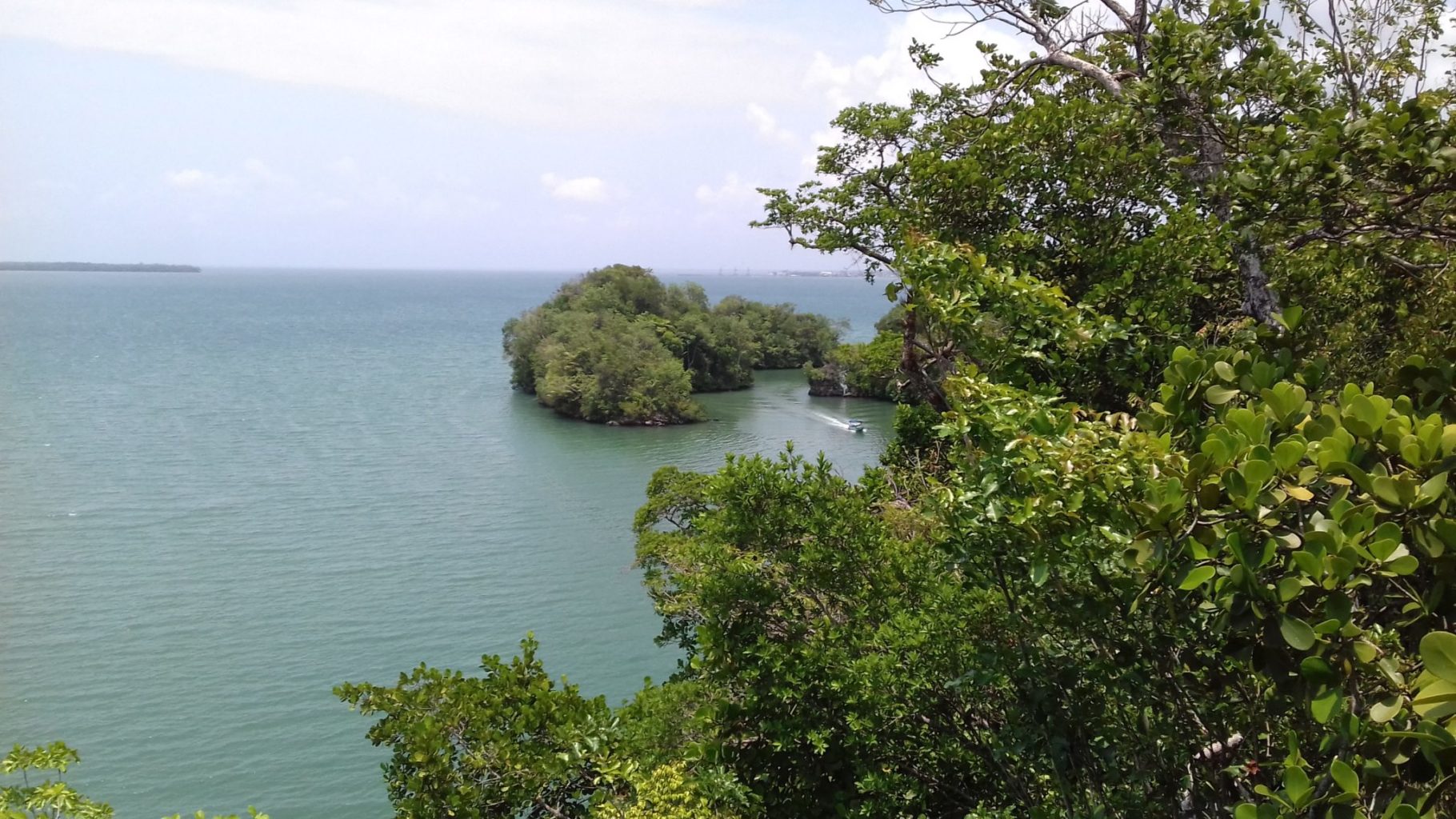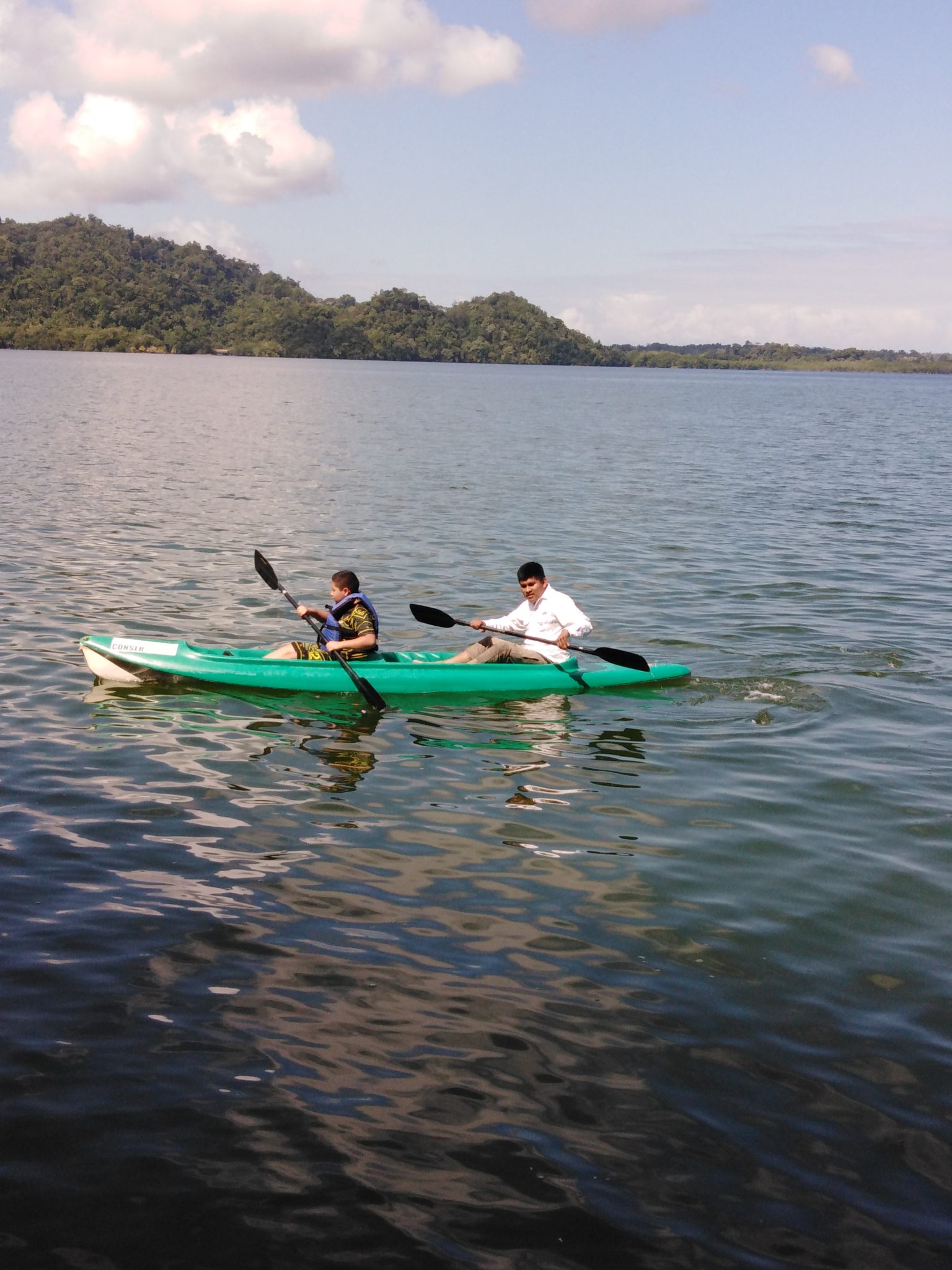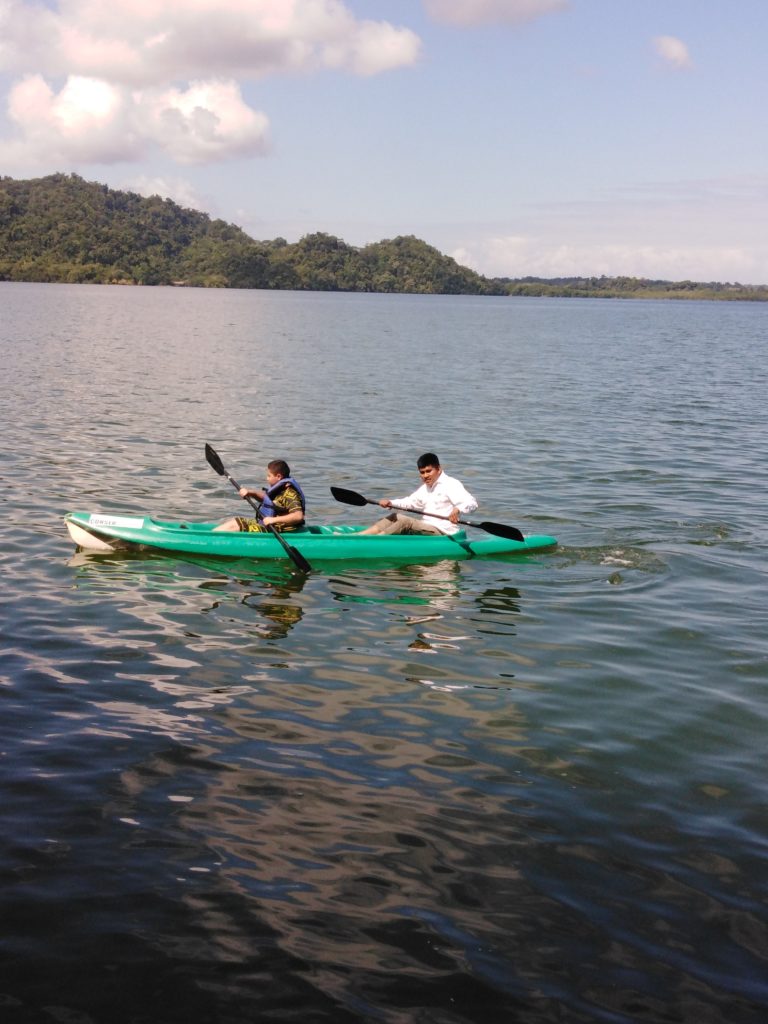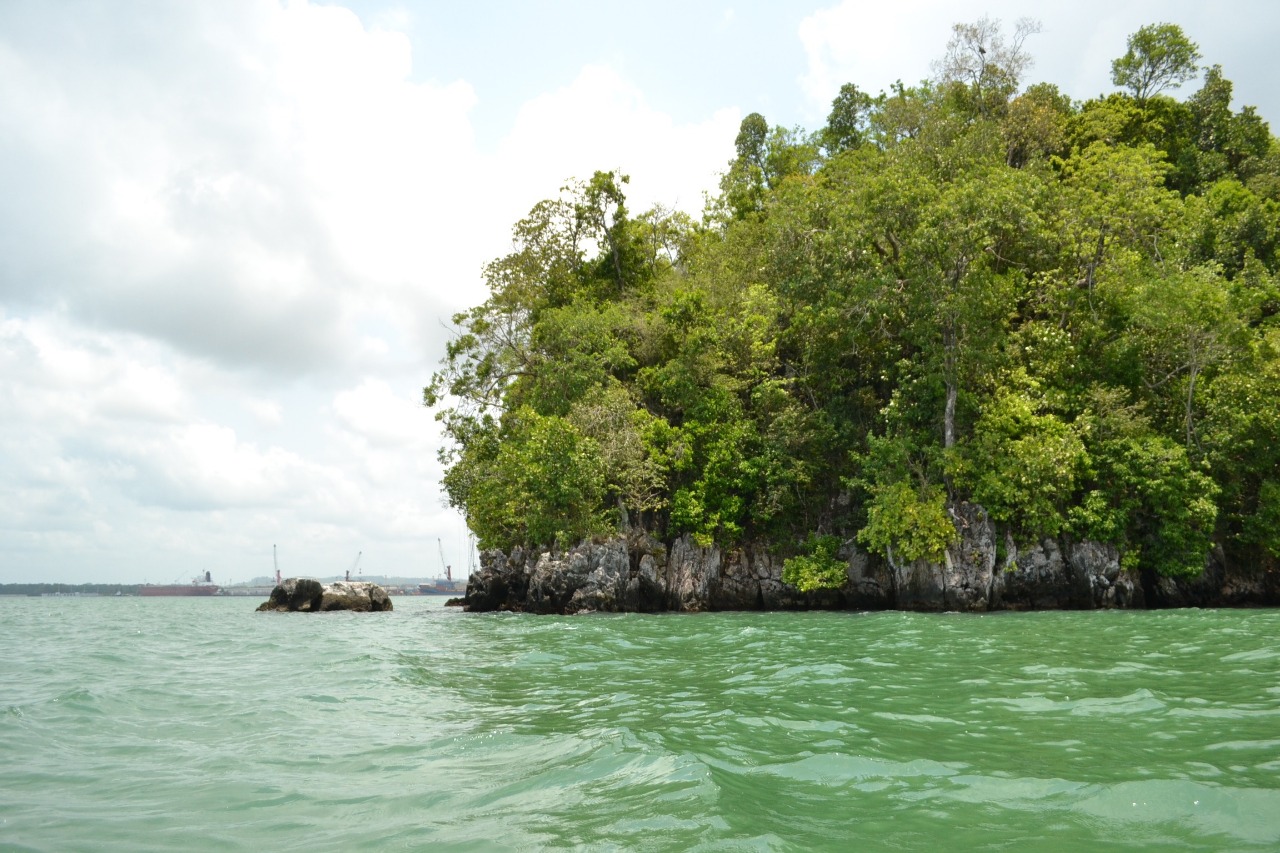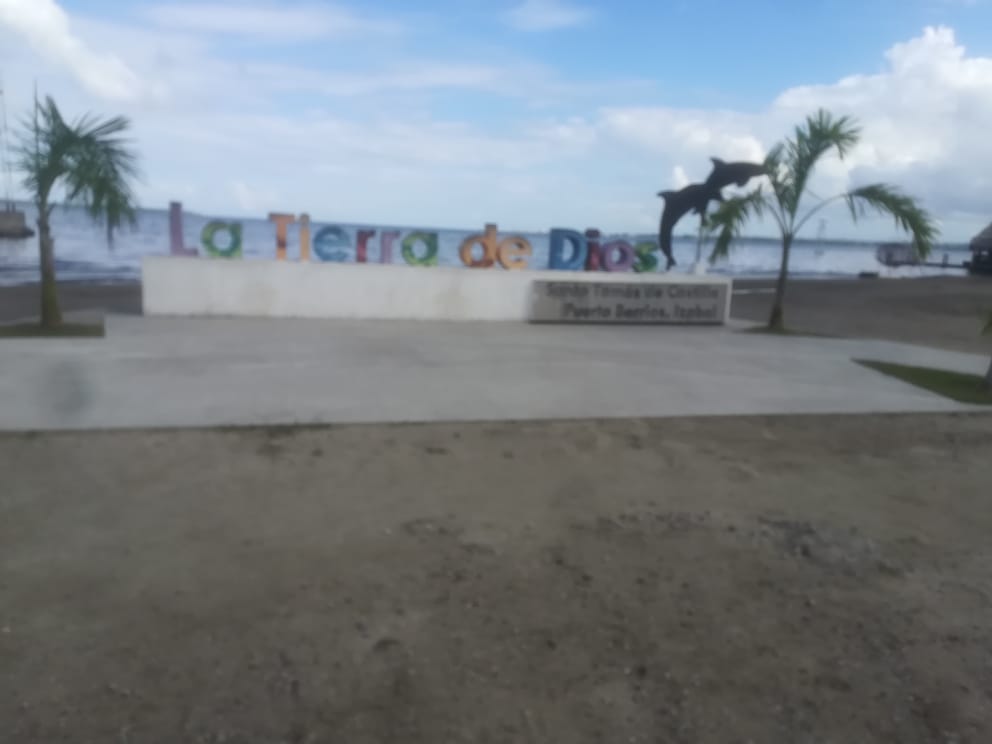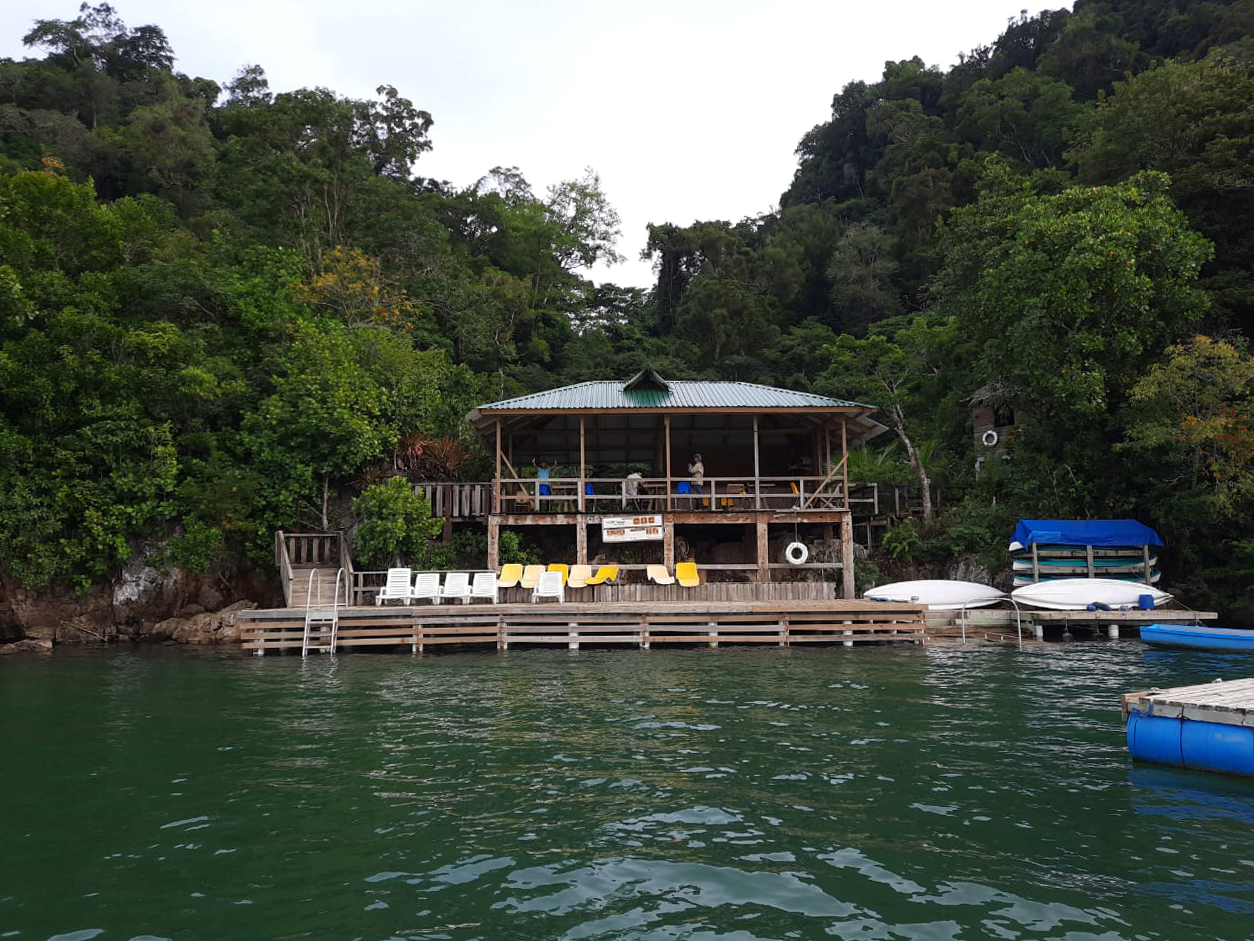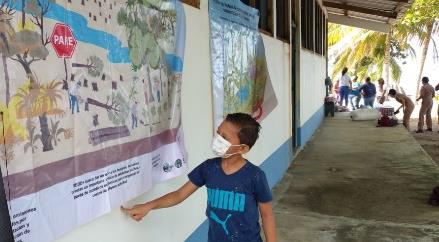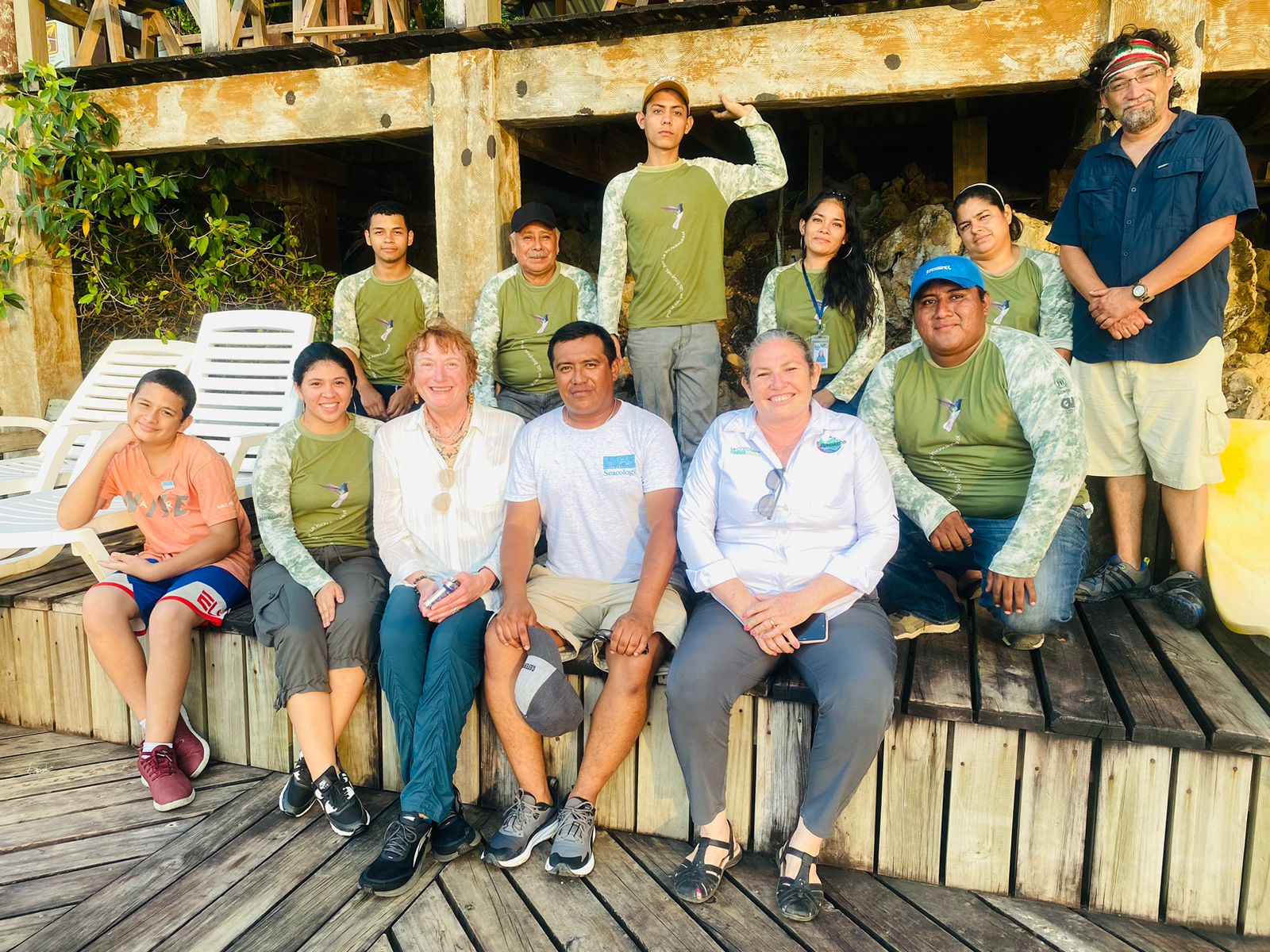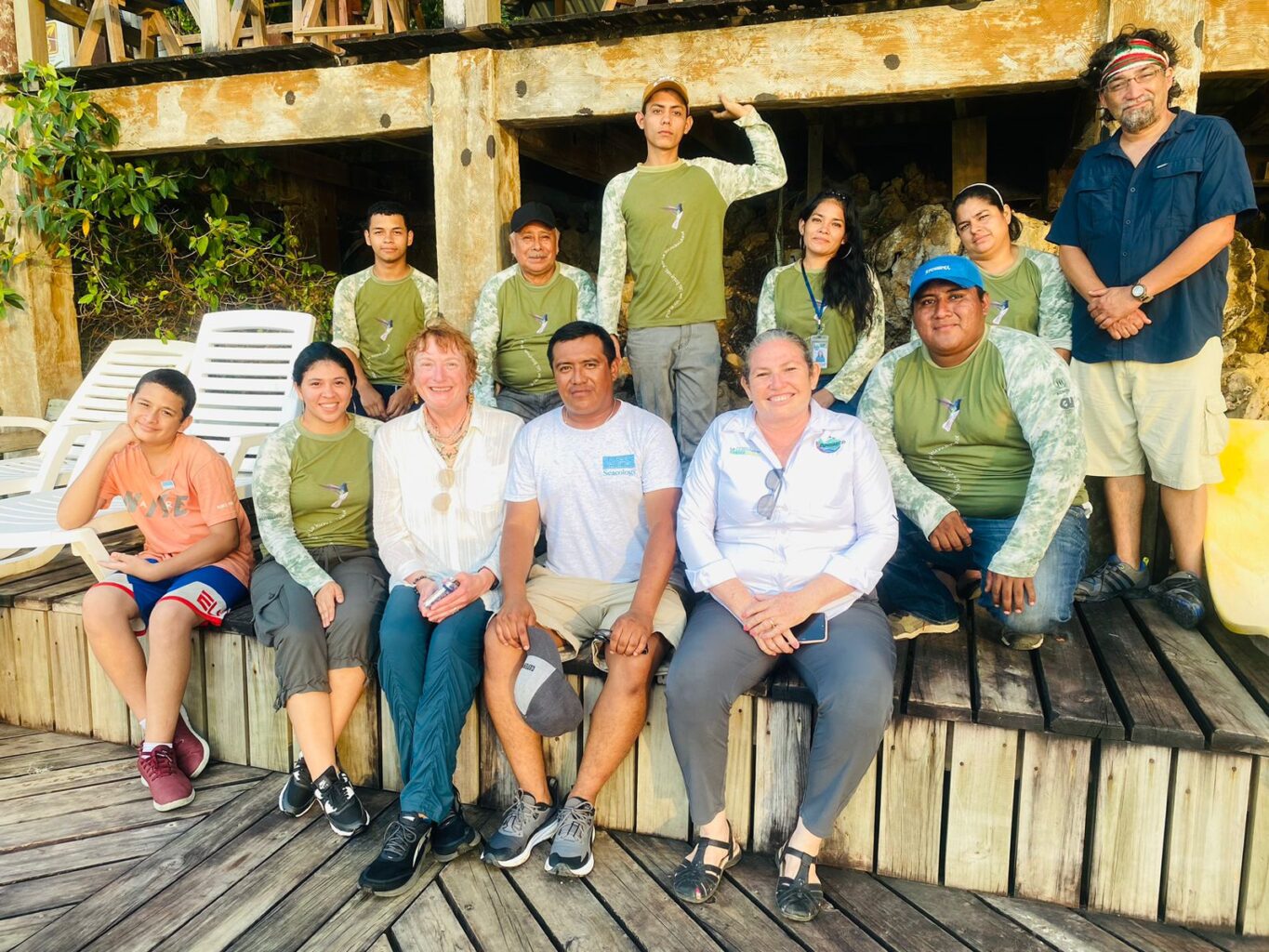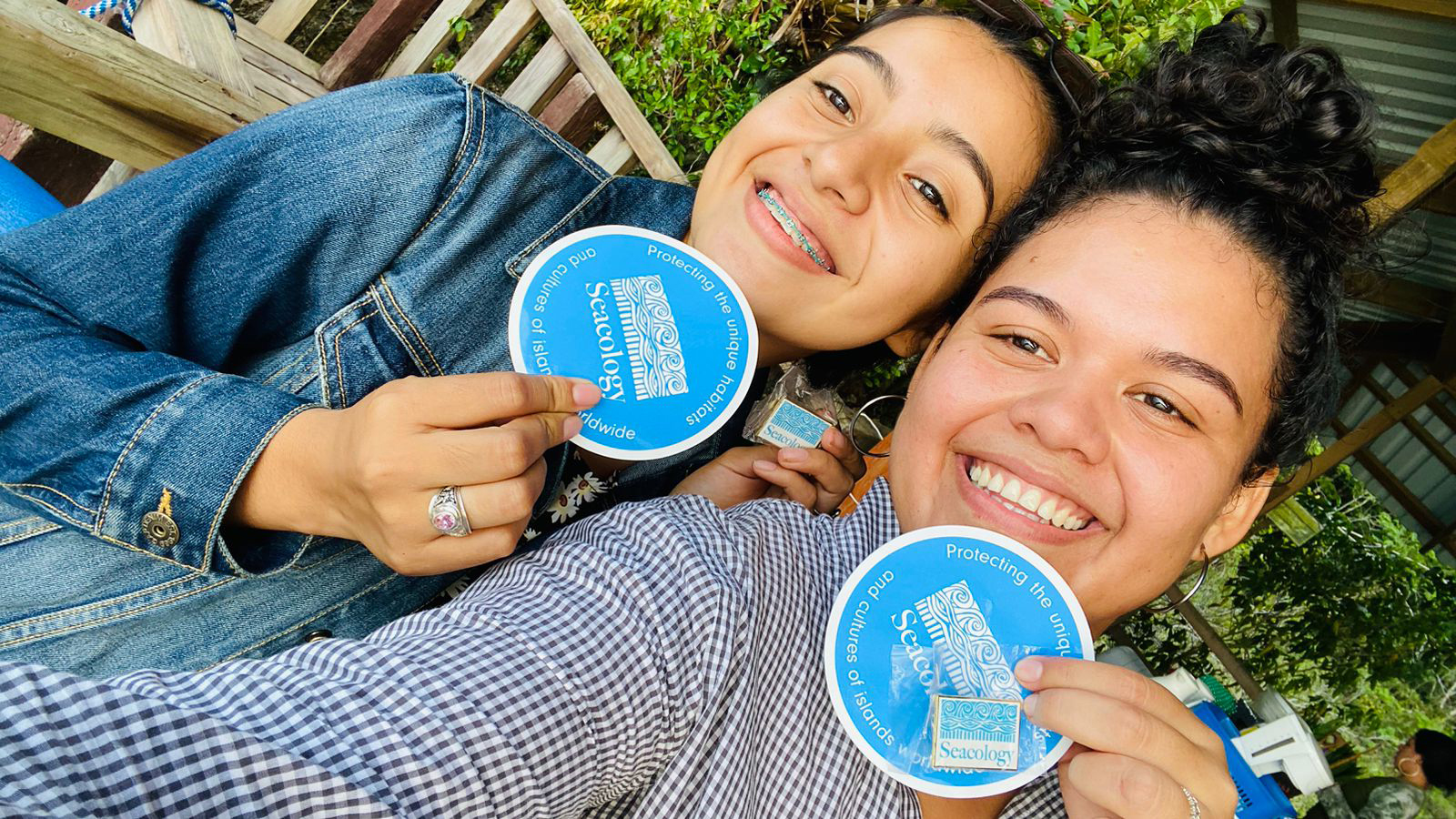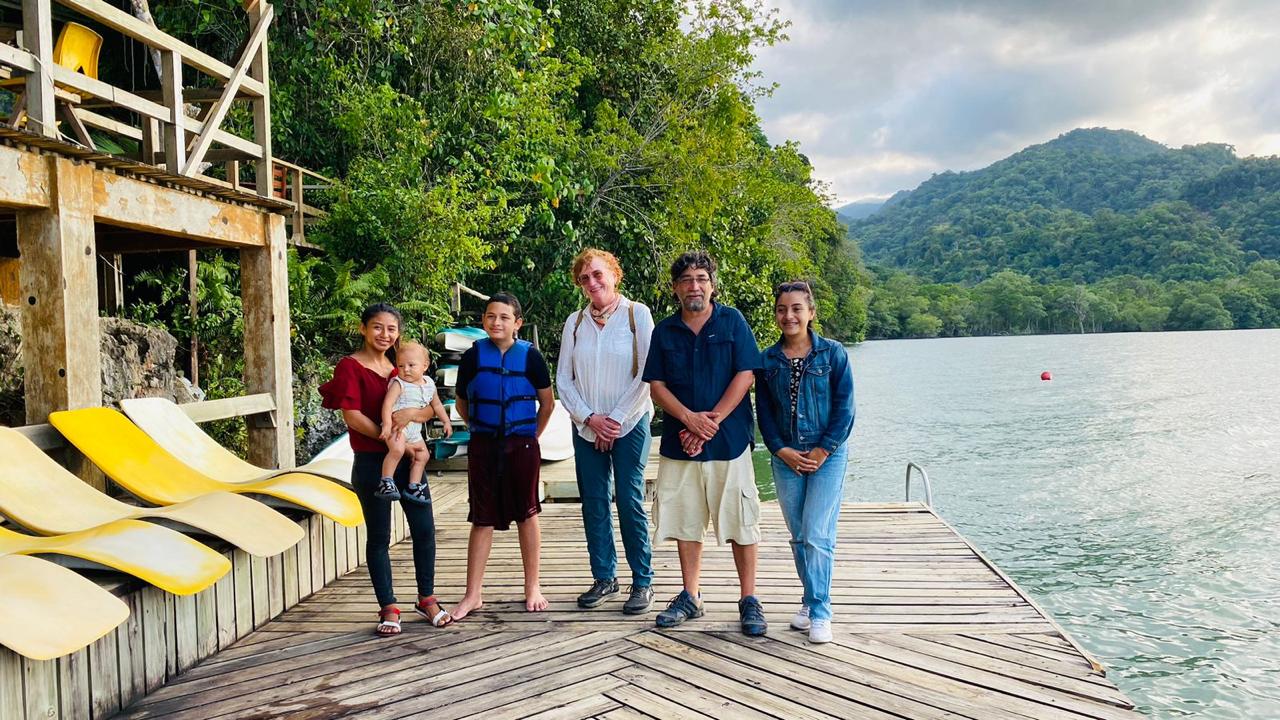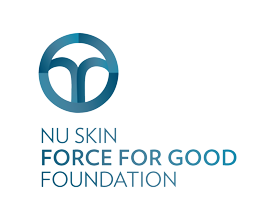The Elephant Stone Keys are three small islands in beautiful Santo Tomás de Castilla Bay, on the Caribbean coast of Guatemala. Mangroves fringe the islands, which also have dry tropical forest and limestone caves. The bay is a spawning area for many species of fish, including mackerel, snook, jackfish, corvina, and tarpon. More than 350 species of resident and migratory birds are found there, including egrets, cormorants, frigatebirds, spotted sandpipers, and semipalmated plovers.
Fishers from outside the area, however, are using destructive fishing methods. To protect the fishery, the local fishing communities will establish, and enforce, a 67-acre no-take (“fish replenishment”) zone. They will use only artisanal line fishing in the area, part of the Green Cove (Ensenada Verde) Reserve.
The area has great potential for ecotourism because it is close to a cruise ship port and natural attractions such as Rio Dulce National Park. The communities will use a Seacology grant to buy gear such as binoculars and bird guides. They will also add solar panels to the visitors center. Local youth will receive environmental education and scholarships, so they can get the skills they need to land good ecotourism jobs.
Creating the fish replenishment zone will have immediate benefits. The ultimate goal, however, is for the national government to declare an official protected area. That would allow the artisanal-fishing requirements to be enforced against everyone, including outsiders. To apply for that enhanced status, the communities need technical help. Part of a Seacology grant will be used to get that expertise.
Our nonprofit partner is FUNDAECO, a Guatemalan NGO that, like Seacology, has a long and successful history of working with indigenous communities and provides financial incentives for environmental protection. FUNDAECO has a good record of establishing and maintaining protected areas.


